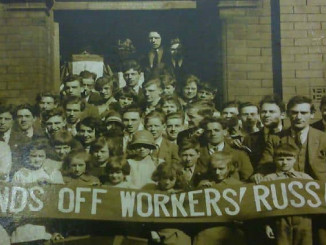
October 30 2025 reprint from the website of the New Anticapitalist Party-Revolutionaries (NPA-R) in France, translated from French
The impeachment of Peruvian President Dina Boluarte, abandoned by her political allies under pressure from the popular mobilizations that have been shaking the country since early September, has not quelled the anger. On October 15, tens of thousands of young people again took to the streets, at the call of Gen Z, waving the One Piece flag, like other rebellious youth around the world, and of labor unions.
Interim President José Jerí declared a thirty-day state of emergency, which could lead to a ban on demonstrations and gatherings. Guillermo Bermejo, a congressman from the Perú Libre (Free Peru—reformist left) party, was recently sentenced to fifteen years in prison for participating in Shining Path Maoist guerrilla activities between 2008 and 2009: a conveniently political conviction that eliminates an opponent in the upcoming election scheduled for April. This, however, did not discourage hundreds of young people who once again demonstrated to pay tribute to one of their own, killed during the recent protests. The government is closing ranks behind the police.
The reasons for the anger remain: It is the hunger and poverty of the working class, compounded by the inability of leaders linked to organized crime to ensure the safety of the population, that are exploding. Extortion, racketeering by criminal gangs, and even assassinations: 55 bus drivers lost their lives in 2025. According to a recent poll, 83.3% of Peruvians have no trust in the police.
This is precisely what brought both Gen Z youth and bus and motorcycle taxi drivers into the streets. On Monday, October 6, the main arteries of the metropolis of Lima (13 million inhabitants, where even normal traffic flow is unbelievable chaos) were besieged and paralyzed by a strike of transport workers from the poorer neighborhoods, in response to yet another assassination.
By playing the card of impeaching a hated president, Congress hoped to quell social discontent. But José Jerí is cut from the same cloth, also burdened with skeletons in his closet—including personal enrichment. It’s doubtful that the stick of repression will deter the mobilizations that are still planned.




